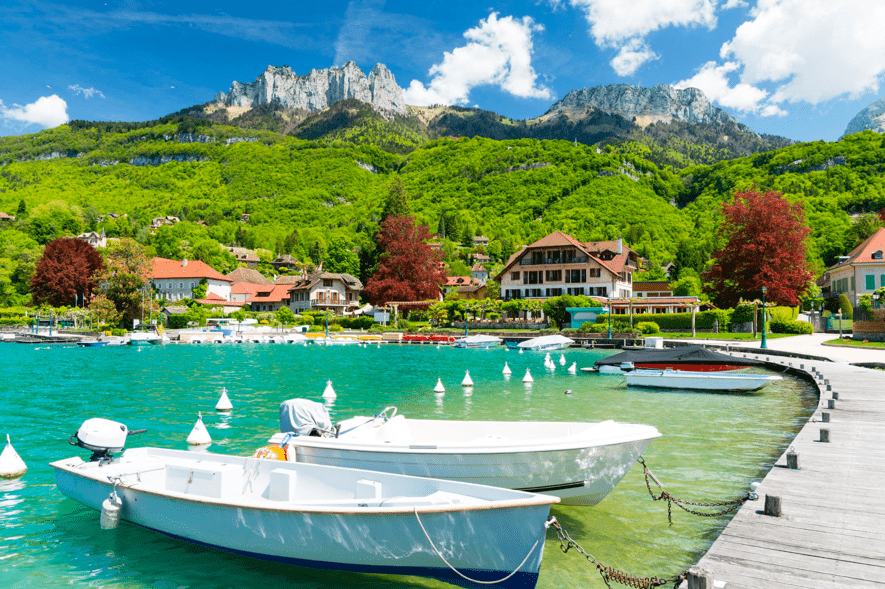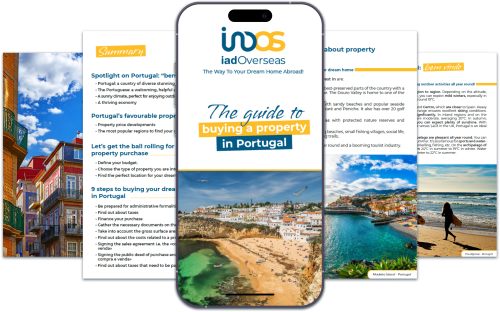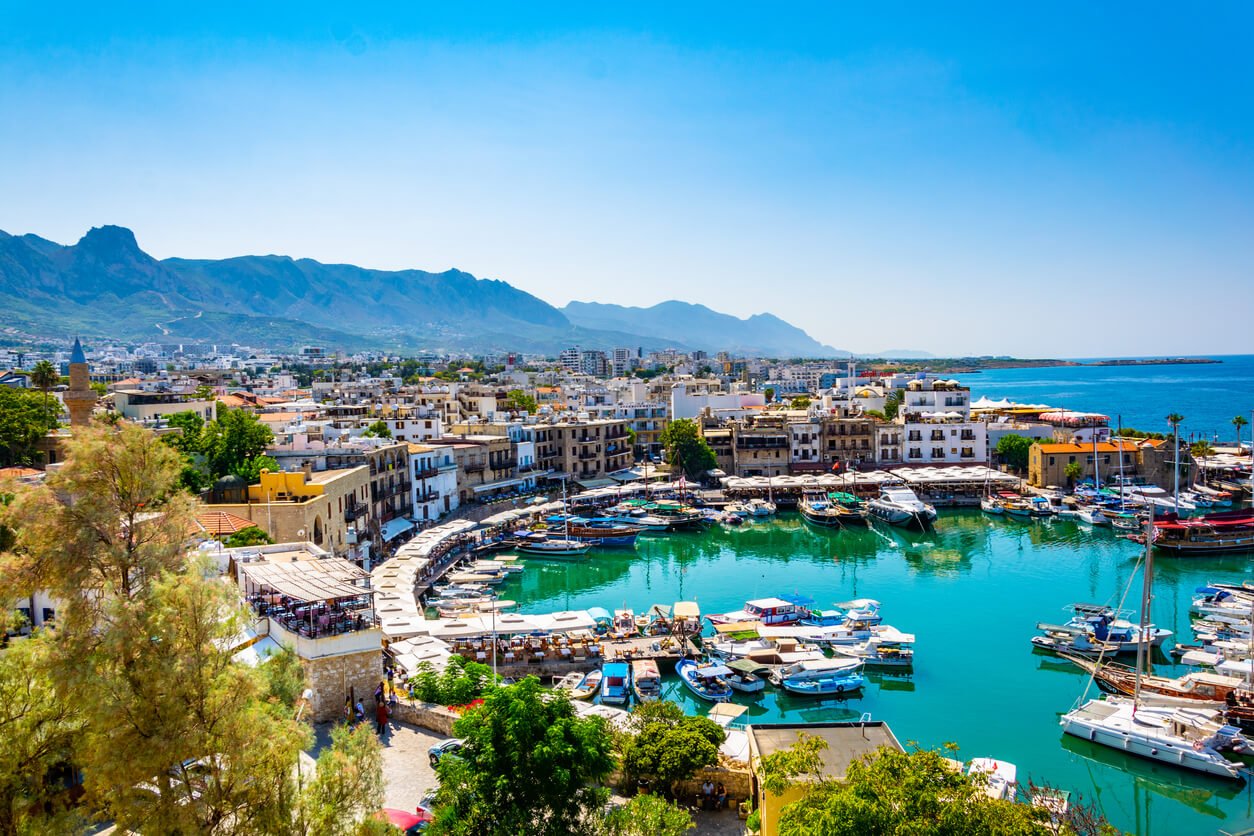
If you’ve decided to live in France, you should start thinking about the practicalities to ensure your move is as smooth as possible. Setting up a new life in a foreign country is exciting and being well-prepared will ensure everything goes to plan. The more you know about costs, regulations and the culture the easier it will be. Preparation is the key to a successful move.
Whether you’re moving to France with your family, as a single person, or as a couple, iad Overseas can offer you the benefit of our vast experience with helping people to achieve their dreams.
Procedures if you are an EU or non-EU resident
The procedure for moving to France depends on whether you’re an EU or non-EU resident.
EU residents
If you live anywhere in the European Union and have residency there, (e.g. Spain, Italy, Portugal, Switzerland, Andorra, Monaco) and you want to move to France, you have the right to live there for up to 3 months without registering with the authorities. You must have a valid passport or residence card from the country where you currently live.
You do not need to apply for a visa after 3 months, but you will need to report your residence in France to the local town hall or a police station.
Non-EU residents
If you are a non-EU resident (e.g. from a third country that is not a member of the EU), you can only stay in France for 90 out of 180 days. This applies to UK citizens as a result of Brexit and citizens from countries such as America or Australia.
After 3 months, you have to apply for a French residency permit. This can be either a long-stay visitor visa (if you are not sure how long you will stay), or a permanent residence permit (carte de résident), which is renewable every 10 years.
Immediate family (spouse and children under 21) of EU citizens can join you in France for up to 3 months before applying for a residence card.
Non-EU family members must apply for a temporary residence card from the French consulate in their own country before moving to France.
This official French government link allows you to check if you need a visa to move to France.
The cost of settling in France
Being aware of the costs and managing your budget will make your move to France much easier.
Cost of living
It’s important to understand the day-to-day living expenses when you move to France. For example, a cup of coffee or a meal in a restaurant will cost you less than in the UK. Groceries tend to be more expensive, but you can offset this by using local markets. The basic utilities such as electricity, gas and water cost less in France than in the UK. Childcare is also much cheaper.
| France | UK | |
|---|---|---|
| Cup of coffee Cappuccino (regular) | £2.56 | £2.95 |
| Meal in an inexpensive restaurant | £13.21 | £15.00 |
| Average monthly utilities (electricity, gas, water) | £144.24 | £197.23 |
| Average monthly Internet | £25.95 | £29.99 |
| Rice (white), (1kg) | £1.77 | £1.39 |
| Monthly Pass (Regular Price) | £57.23 | £65.88 |
For up-to-date cost of living comparisons, visit this website.
Property
Buying a property in France means that you can settle in an area and become part of the community. House prices are generally cheaper in France, so you can buy a larger property for your money than in the UK. The average house price in France is currently €180,000, whereas in November 2022 it was £295,000 (€336,488 at the current exchange rate) in the UK.
Taxes
If you’re a resident, you will be liable to pay tax in France. This includes any worldwide income you may have, for example, if you still have a property in your home country and rent it out. You will also have to pay tax if you own a property in France and rent it out, for example, if you live in one home and lease another.
Retirees are also taxed on any pension they receive over the current threshold of €10,225, although you will receive an allowance of 10% of the total income per household.
If you have any tax questions regarding your move to France, we can suggest a reputable tax advisor.
Repatriation insurance
Unfortunately, accidents can happen and it’s wise to be insured against the unforeseen. Repatriation insurance can cover the cost of flying you back to the UK if there is an emergency and you would prefer to be treated at home. It can also cover your funeral costs and returning your body to the UK in the event of your death. While you may not want to think about these things, having the right cover can give you peace of mind.
The cost of moving to France
If you’ve sold up in the UK or your home country and are moving to France permanently, you’ll probably have a house full of possessions and memories to move.
Preparing to move
Once you know you’re moving to France it’s a good idea to clear out the clutter and identify what you think you’ll need. Do you need all those toys, files, and kitchen pots and pans? This is your new life and while we don´t advise buying everything when you get to France, it will be more cost-effective to buy many items, such as:
● White goods.
● Electrical items such as a television, microwave, toaster etc.
● Basic furniture (beds, wardrobes etc. – ask yourself whether your current furniture will suit your new home).
● Bicycles, outdoor play equipment.
Using a removal company
The price for moving your possessions will be calculated on the square meterage. This all depends on how much you decide to take, so you’ll need to get a quote. The average cost for a 4-bedroom house move to France is £4,500[1]. You can reduce this cost by being ruthless about what you take.
The price will also depend on:
● The distance.
● Whether you pack boxes yourself or get the removal company to do it.
● Access to both properties.
The removal company may combine your goods with someone else’s to make the transportation more cost-effective. When you book a removal company, make sure the quote covers the cost of insurance for your possessions.
Using a man with a van
This is a cheaper option if you don´t have too many possessions. You’ll find advertisements on social media and the Internet. It’s up to you to choose a reputable company you can trust.
Transporting your possessions yourself
If you don´t mind driving long distances, you may decide to move your belongings to France yourself. If you have a suitable vehicle you can use this, or you can hire a van from a company that accepts one-way journeys.
You may decide to do this if you are taking pets to France. Make sure you’re aware of the regulations for importing pets into France!
Remember that if you’re using your own vehicle, you will then have a UK-registered car in France that must be changed to French registration.
To register the vehicle, you will need to apply for 2 documents:
● Certificat de Conformité – Provided by the car manufacturer to state your vehicle complies with European standards.
● Contrôle Technique – The equivalent of an MOT to ensure the vehicle is safe to drive.

Settling into the French lifestyle
Once you’ve arrived, you can go about adapting to your new way of life, make new friends and interact with the French culture.
Learning French
You may already know some French from your school days, but it won´t do any harm to brush up on your language skills.
Being able to speak French will give you a much deeper insight into the French way of life.
You can converse with the locals, navigate bureaucratic situations and will generally be more accepted.
You can take one-to-one lessons or join a group and make friends there, too. Most towns have local French classes which you’ll find advertised on social media or at the town hall. Some may even be subsidised by the town council. Not ready to join a group? You could try learning French on an app such as DuoLingo or Babel.
If your children are going to attend school, you may want to send them to extra French classes to get them up to speed with the language.
Integrate and live like the French
Sample the delicious food
France is known for its spectacular cuisine8, whether you’re eating a croissant with your morning coffee, having fresh seafood for lunch or dining on boeuf bourguignon for dinner. The different regions offer a mix of specialities, from crepes in Brittany to cassoulet in Carcassonne.
Don’t forget the French wines9! From full-bodied reds from Bordeaux to the sparkling champagnes of the north, France is full of vineyards to visit.
Explore the diverse regions of France
If you’re lucky enough to move to France, you have the opportunity to discover the vast range of landscapes and climates it offers. You can ski in the French Pyrenees or the Alps, sun yourself on the French Riviera and surf on the Atlantic coast.
If you love the countryside, France has many beautiful national parks. You can walk through the pine forests of the Landes des Gascogne in Aquitaine, wander through the lavender fields of Provence or explore the volcanic region of Auvergne.
France is perfect for outdoor sports, whether you love hiking, skiing, or cycling. Make the most of the wonderful scenery and miles of space and take the time to get to know your new home.
- Integrating into French life will help you settle much faster.
- Learning French is very useful.
- You don´t need to take everything with you to start your new life.






